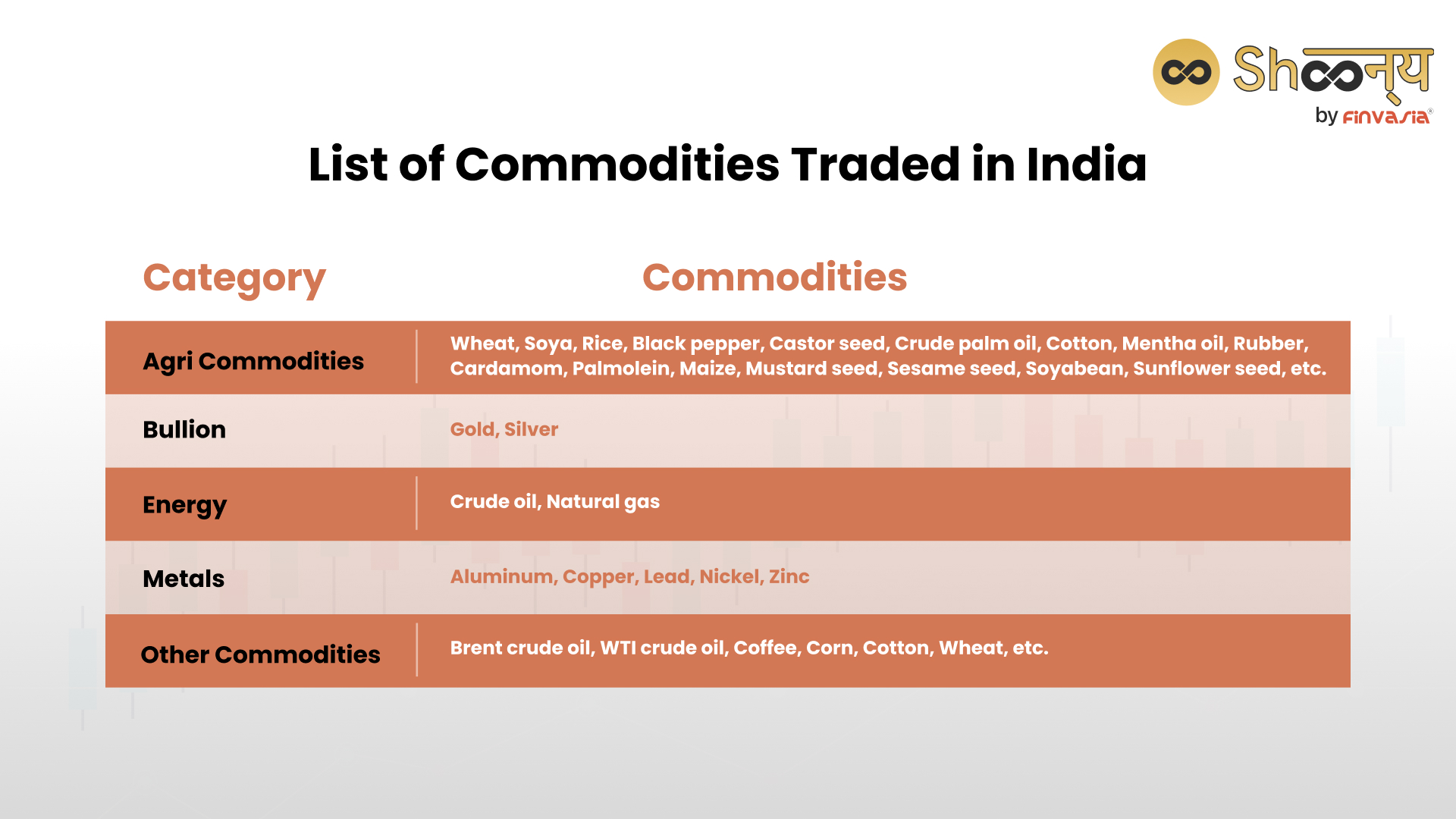Comprehensive List of Commodities Traded in India: Top Picks for Trading

The world of commodities is a cornerstone of economic activity, comprising essential raw materials and resources. Similar to the stock market, commodity trading involves buying and selling these crucial resources to generate profit. In India, major commodity exchanges such as MCX and NCDEX facilitate the trading of a diverse range of commodities, offering numerous opportunities for investors to participate and profit in this dynamic market.
Prominent Commodity Exchanges in India
India boasts several influential commodity exchanges, including the Multi Commodity Exchange of India (MCX), National Multi Commodity Exchange of India, Indian Commodity Exchange, and National Commodity and Derivatives Exchange. These platforms serve as hubs for trading derivatives and spot commodities, empowering investors to capitalize on market fluctuations.
Types of Commodity Markets
Commodity trading is carried out in two primary markets: spot markets and derivatives markets. Spot markets involve the immediate exchange of physical commodities, while derivatives markets involve contracts for future delivery. The latter includes futures and forwards, offering standardised contracts for trading on exchanges.
Exploring the Commodities To Trade in India
Within the global commodity landscape, specific commodities garner significant attention:
Crude Oil: A vital energy resource, the demand for crude oil is influenced by geopolitical events and economic trends.
Gold: A trusted safe-haven asset, gold’s value often moves inversely to currency fluctuations.
Soybeans: This agricultural commodity’s pricing is impacted by factors such as weather conditions and demand variations.

Diverse Commodities Traded in India (MCX and NCDEX)
The MCX hosts a wide spectrum of commodities, ranging from bullion (gold, silver) and agricultural items (cotton, soybean, wheat) to energy sources (natural gas, crude oil) and base metals (aluminum, copper, zinc). Meanwhile, NCDEX offers trading opportunities in cereals, pulses, soft commodities, fibers, spices, and oilseeds.
Participants in the Commodities Market
The commodities market witnesses the participation of two main categories: speculators and hedgers. Speculators predict price movements and make corresponding buy/sell decisions. In contrast, hedgers, such as producers, employ futures contracts to mitigate risks stemming from price fluctuations.
Advantages of Engaging in Commodities Trading
Engaging in commodities trading provides transparency, as transactions occur on regulated exchanges, ensuring fair pricing. Risk management is fortified, thanks to the implementation of protocols by exchanges to protect investors. Furthermore, lower margins and enhanced leverage attract both novice traders and seasoned investors.
In Conclusion
The world of commodity trading in India presents a platform for investors to interact with a diverse range of commodities, spanning precious metals to agricultural products. By delving into the intricacies of the market, participants can develop effective strategies, harnessing profit potential while adeptly managing risks. Whether you are an experienced investor or a newcomer, the realm of commodity trading is brimming with opportunities to explore and achieve success.
FAQs
The choice of commodities to trade depends on individual preferences and market analysis. Investors often consider commodities with active markets and price volatility.
Globally, crude oil and gold are among the commodities with high trading volumes due to their economic significance and role as a store of value.
The determination of the “best” commodity to buy varies based on investment goals, risk tolerance, and market trends. Diversification and research are key considerations.
The top 10 commodities on MCX can change over time but historically include items like gold, silver, crude oil, natural gas, copper, zinc, lead, nickel, aluminium, and cotton.
______________________________________________________________________________________
Disclaimer: Investments in the securities market are subject to market risks; read all the related documents carefully before investing.






